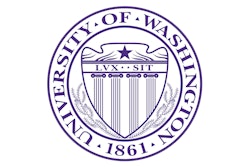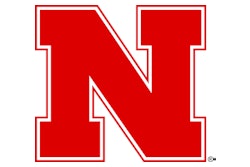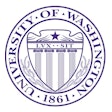Copyright 2016 Philadelphia Newspapers, LLC
All Rights Reserved
The Philadelphia Inquirer
In a stinging opinion, a judge Wednesday ordered Pennsylvania State University to pay nearly $5 million to Mike McQueary, concluding that school officials retaliated against the former assistant football coach for cooperating in the investigation that exposed Jerry Sandusky as a sexual predator, and led to coach Joe Paterno's firing and charges against three school officials.
The ruling by Judge Thomas Gavin comes on top of a jury verdict that Penn State should also pay McQueary $7.3 million for defaming and lying to him. Together, the decisions highlighted flaws in the university's handling of the Sandusky matter and the deep impact it continues to have.
"The fact that five years [later], Mr. McQueary could not be employed as a cashier in a local drug store shows . . . the extent to which he has been ostracized in the Penn State community," Gavin wrote in his 62-page ruling.
In a statement Wednesday, a university spokeswoman would say only that the school was reviewing the judge's latest decision. It had said it would appeal the jury award.
Sandusky's prosecution and 2012 conviction for sex attacks on boys has led to countless other court proceedings, lawsuits, and settlements nearing $100 million.
Few plaintiffs have had the profile of McQueary. His claim that he reported seeing Sandusky, a longtime Paterno aide and the team's former defensive coordinator, sexually assaulting a boy in a locker-room shower in 2001 is a pillar of the still-pending case against former Penn State president Graham B. Spanier and two other ex-administrators.
It's not clear how the judge and jury's validation of that claim might affect the prosecution's case that the three allegedly endangered children by not reporting the account.
But in the years since Sandusky's arrest, the onetime star quarterback and assistant coach said, his ties to the case have cost him his livelihood, marriage, and career.
Routinely vilified by Penn State fans who blame him for Paterno's firing and the negative spotlight on the school, McQueary said that he was forced to move back home with his parents and that his notoriety prevented him from getting a job even as a drugstore clerk.
Penn State's claim
During the trial, Penn State argued that McQueary lost his job in late 2011 in a normal coaching turnover that followed Paterno's ouster - and that he simply wasn't good enough to get another.
Gavin didn't see it that way. Over nearly four pages in his opinion, under the headings "Reputation" and "Humiliation," he outlined steps the university and its representatives took - or failed to take - that effectively amounted to punishment McQueary endured for coming forward, and violations of the state's whistle-blower laws.
He noted how as soon as McQueary's role in the investigation became public - and Penn State received messages threatening McQueary and his family - the university suddenly placed him on administrative leave, banned him from its athletic facilities, and ordered him to clean out his office as Penn State personnel watched.
He wrote that in the days following Sandusky's arrest, it was McQueary, not the administrators he first notified in 2001, who was blamed for not reporting to police what he saw in the shower - accusations that would lay dormant for a decade.
And while the judge said he accepted the testimony of Bill O'Brien, Paterno's replacement as head coach, that McQueary wasn't qualified to join his staff, Gavin concluded: "The objective evidence is that Mr. McQueary would not have been removed from his coaching position but for his involvement in the 'Sandusky Matter' once it became public knowledge."
Following policy
Gavin, a Chester County judge who was brought to Centre County to preside over the case, also pointed out that McQueary was following established university policies when he reported Sandusky's assault to his supervisors.
And yet, he wrote, Penn State has never acknowledged that. Simply to have done so, the judge wrote, "would have gone a long way in limiting the harm to his reputation."
On Oct. 27, the jury awarded McQueary $1.15 million for the defamation, another $1.15 million for misrepresentations by former athletic director Tim Curley and vice president Gary Schultz, and $5 million in punitive damages.
Gavin's order made a passing reference to those damages but described the sums as "insufficient and not binding on me."
He ruled the school should pay McQueary $3.9 million in damages for past and future economic loss, and $1 million for noneconomic losses, including humiliation and damage to his reputation.
He also said that Penn State should pay McQueary's legal fees, and that McQueary should get the average bonus given to assistant coaches for the football team's 2012 Ticket City Bowl appearance.
Lawyers for McQueary and Penn State did not return calls for comment Wednesday.
[email protected] @AngelasInk
Read More of Today's AB Headlines
Subscribe to Our Daily E-Newsletter
Terms and Conditions Privacy Policy































